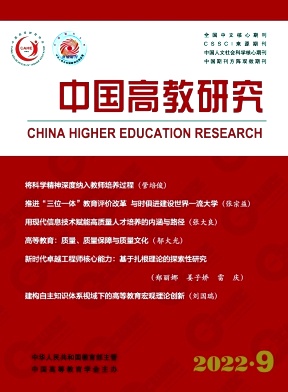Feature
GUAN Peijun
Science education is the proper meaning of education. Teenagers are an important period to cultivate scientific interest, experience scientific process and develop scientific spirit. To cultivate young people’s scientific literacy, we should first improve teachers’ scientific literacy and bring scientific spirit into the teacher training process. This is the requirement of implementing the fundamental task of Building Morality and Cultivating People. It is of great significance to fundamentally improve the overall quality of teachers, improve and enhance the quality level of science education, effectively integrate and strengthen the teaching force of science education and cultivate scientific and technological innovation talents. To implement the project of improving teachers’ scientific quality, we should give full play to the role of the mother machine of normal education, speed up the promotion of first-class comprehensive universities to hold normal education and set up “science education” majors, strengthen the construction of science teachers, comprehensively improve the professional level of science teachers, implement the plan of improving teachers’ scientific quality, encourage first-class scientists and first-line scientific research teams to participate in the research and practice of science education, innovate the training of science education teachers through the integration of science and education, improve the ability of teachers to implement science education by using off campus science and technology resources, and strengthen the scientific popularization teachers in rural schools and rural communities, as well as strengthen the baton of “bringing the scientific spirit into the teacher training process”.
